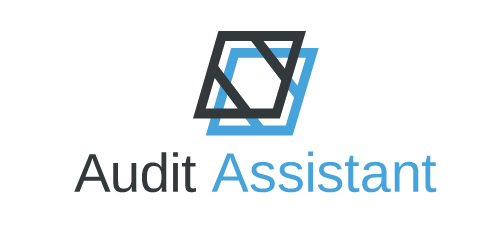How Incorporated Societies can use audits to build trust, attract funding, and strengthen governance.
For many incorporated societies, audits can feel like a necessary chore — a box-ticking exercise for funders or the rules. But, when done well, audits can be one of your strongest tools for credibility, risk management and even unlocking more funding. In this article we’ve outlined some insights and tips from Alex Houghton, Director, from BVO Audit, who has been helping Incorporated Societies for years. He believes boards and management can turn the audit process into a genuine asset – with the right mindset and a little forward planning.
The audit: your secret weapon
Audits do more than confirm the numbers. They tell funders, members and the public that your organisation is well-run and worth backing. For societies competing for scarce grants, building trust with members or managing growing funds, this assurance matters.
It is also a sanity check for your internal systems. Whether you are a grassroots volunteer group or a national peak body, the audit gives an outside view on how you are managing risk and resources. And if you are looking to grow or professionalise, an unqualified audit report can help you get there faster.
As Alex put it, “A good audit is a signal to the outside world that you’re serious about doing things properly. Even when it’s not required, it shows maturity.”
Why funders (and members) notice the difference
Funders are becoming more selective. They want transparency and they want to know their money is well spent. An audit shows stewardship and organisational credibility. Alex explained that audits are increasingly seen as a mark of maturity. “Funders want to know they’re backing organisations that have their house in order. An audit shows you’ve got systems, controls, and accountability in place.”
Members notice it too. When you can confidently report back at the AGM with audited accounts, it shows you are serious about stewardship. It builds trust in the committee and confidence in the organisation’s future.
As client and CEO Alex Hayton from International Taekwon-Do Foundation of New Zealand (ITDNZ) told us, “We could have chosen a lighter financial review, but we believe in full transparency. A proper audit gives our members peace of mind that we’re running things well and being good stewards of their contributions.”
Alex shared that audits can also pick up issues. In one recent case, BVO helped an industry association realise they had been overstating revenue by incorrectly classifying a loan, and over-returning GST. Fixing the issue saved them thousands of dollars. The board was capable, but like some volunteer-led boards, lacked some specific financial knowledge. The audit caught it, and they ended up in a stronger position and learned a valuable financial lesson that those board members can take into other boards in future.
Another benefit from a consistent relationship with a great audit partner is institutional knowledge. Over years of partnership, the audit process becomes more efficient and collaborative. Institutional knowledge means BVO understands the nuances of the organisation, even as internal personnel change. As Alex from ITDNZ says “You’re not starting from scratch each time. That continuity saves time and builds trust.”
The traps that trip up well-meaning societies
Even well-run societies can slip into traps that create risk or waste time and money. Here are the most common:
- Mistaking simple accounts for low risk
Just because your finances are relatively simple doesn’t mean they are bulletproof. A lack of segregation in duties or unclear policies can leave you exposed. - Thinking “we’re too small to need an audit”
Size is not the only trigger. Sometimes your constitution or a funding agreement requires it. Sometimes it is just smart governance. - Letting the constitution gather dust
Many constitutions are outdated and no longer reflect how the organisation actually operates. With changes to the Incorporated Societies Act, rewriting is not optional. BVO flags these issues early to help boards prepare. - Believing audits will always catch fraud
They don’t. Audits can identify some anomalies, but strong internal controls are your first line of defence. Without good delegation and tracking, even small organisations can run into trouble. - Thinking the buck stops with the audit
One common misconception is that an audit shifts responsibility away from the board. It doesn’t. It gives the board better information, but oversight still sits with them. - Leaving audit planning until the last minute
Scrambling after the end of your financial year creates pressure and frustration. Starting earlier means you can work through queries calmly, and fix anything that needs attention without panic.
As Alex puts it, “The organisations that do best are the ones that treat the audit as a chance to improve, not just a task to get through.”
The upside: audits that build confidence and save time
An audit can be more than a report. It can be the moment where blind spots are caught and confidence is built. It can help the board understand what is actually going on financially, especially when members come from diverse backgrounds but may lack governance experience.
Even basic changes like moving from spreadsheets to Xero, or reviewing delegation policies can drastically reduce audit time and improve reporting. BVO’s audit technology platform and processes allow clients to directly upload data, avoiding repetitive questions and streamlining the whole process.
When the same firm works with you year on year, that institutional knowledge builds. It becomes less about “what happened this year” and more about supporting your organisation to improve.
Five tips on how to make your next audit painless — and even helpful
- Start the conversation early. Even before year-end. It gives everyone breathing room
- Make sure records are reconciled, grant conditions are tracked and delegation policies are clear
- Be honest about any changes or risks. Auditors are not there to catch you out. They can help
- Use the audit as a moment to reflect and improve. Not just on the numbers, but on how your systems support your mission
- Share the outcome with your members. It builds trust and shows them how seriously you take your responsibilities
If you are not sure what your obligations are, or you want to understand how to turn the audit process into a strength click on our free 30-minute consultation booking button and BVO audit can help you work it out.
Don’t just take our word for it. Check out what ITKDNZ had to say about their experience with BVO audit




